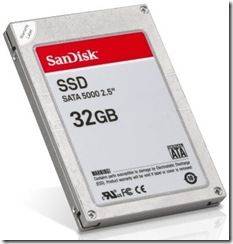 John Hill, the CEO of Allegiance Tablet PC Experts has blogged a nice list of things to think about when looking at the choice between hard drive and SSD.
John Hill, the CEO of Allegiance Tablet PC Experts has blogged a nice list of things to think about when looking at the choice between hard drive and SSD.
I have the Raon Digital Everun note 24GB SSD version in front of me right now for a hands-on article I’m writing on and its interesting to read and think about some of the points he’s made while I do my testing. Take this one for example.
When failures occur, they tend to occur either ‘on write’, or ‘on erase’, rather than ‘on read’. With traditional HDDs, failure tends to occur ‘on read’. If the drive detects failure on write, data can be written to a new cell without data loss occurring. If a drive fails on read, then data is usually lost permanently.
I disagree that all SSDs will have "Extremely fast write" but that’s probably because I see a lot of cheap drives!











Well,Intel already has drives with writes of upto 120MB/s. That’s nothing you’ll find with harddrives.
They managed to get these speeds, AND reduce the write lag or latency by creating a more effective controller.
Samsungs controller which has been used for both the SSD’s MLC and SLC market in nearly every SSD that exsists, has it’s flaws in MLC drives.
Intel found a way to go around the issue and will be delivering 32Gb to 120GB with writespeeds from 75MB/s upward and readspeeds of well over 200MB/s!
So I’ll have to disagree here.
His post is good but his write cycle numbers are from the past…
… nowadays we have SSDs with write cycles of millions.. so wear is not a problem anymore.
but are the advantages of SSD being over looked, no moving parts reduced heat, reduced power consumption, I look for features that I can use, not the trends, Intel is jumping on the SSD bus, and that means lower prices, I found 128GB for my MBP for under $399.99 and that has some respectable speed. That could be one good thing from all theses companies going SSD route.